Your Guide to a Career in Pharmaceutical Quality Control

What is Quality Control?
The goal of QC is to prevent defective or contaminated products from reaching the market. QC involves a series of checks and tests throughout the drug development and manufacturing process. This critical process ensures the identity, strength, quality, purity, and safety of pharmaceutical products.
The Importance of Pharmaceutical Quality Control
Both Quality Control and Quality Assurance processes are of high importance throughout each phase of the pharmaceutical development. There are many reasons why Quality is integral to the pharmaceutical world first and foremost (and most importantly) it protects public health by ensuring pharmaceuticals are safe. Other benefits of QC (and also QA) include protected product integrity, cost efficiency, increased reputation, and increased market access.
Essential Skills and Qualifications
- Technical Skills: Strong understanding of chemistry, biology, and microbiology.
- Soft Skills: Attention to detail, problem-solving, analytical thinking, and effective communication.
- Educational Requirements: Bachelor's degree in a scientific field (e.g., chemistry, biology, pharmacy).
- Certifications: Consider certifications like ASQ certifications (CQE, CQA).
We explore these skills and qualifications in more detail here.
Career Paths in Pharmaceutical Quality Control
Relationship with Quality Assurance:
While QA and QC have distinct roles, they are often intertwined. This means that there is enough overlap and transferable skills to hop from QA to QC. We explore the key differences between these similar roles.
Entry-Level Positions:
Quality Control Analyst
Senior Roles:
Quality Control Manager
Management Positions:
Director of Quality Control
Vice President of Quality
The Future of Pharmaceutical Quality Control
Emerging technologies: Increasing use of automation, artificial intelligence, and data analytics. Increasing technological advancements like interconnected systems, smart factories, and the IIoT, has led to the rise of Industry 4.0.
Industry trends: Focus on continuous improvement, risk-based quality management, and patient safety. New tools like the Micrometer Driver are being developed.
Challenges and opportunities: Addressing complex regulatory requirements, global supply chain challenges, and emerging markets.
Are you Looking for QC Job in a Pharmaceutical Setting?
There’s a wide range of roles in the pharmaceutical industry. If you are interested in a role in the pharmaceutical world, we have a diverse portfolio of roles including QC roles. So, if you want to find your perfect role, submit your CV and we will get in touch.


